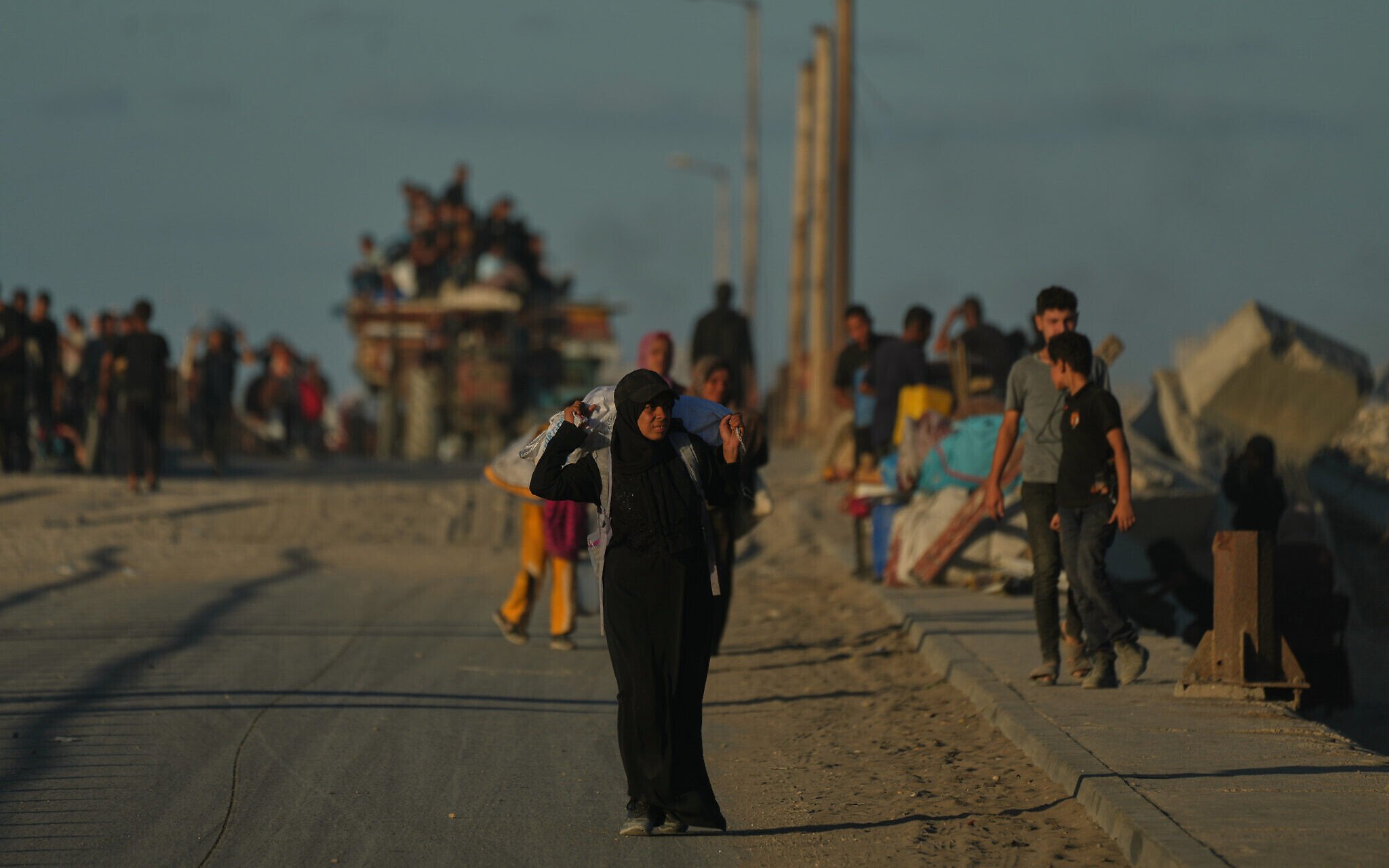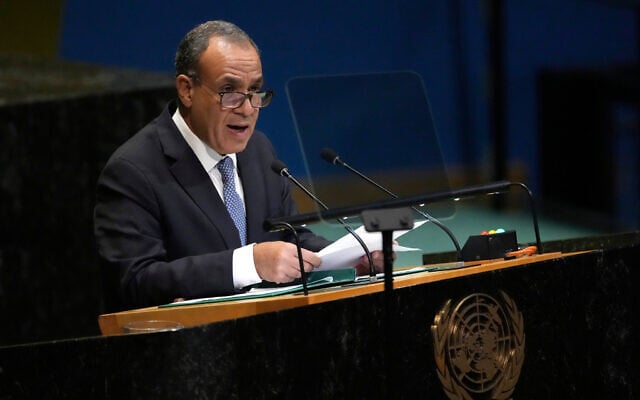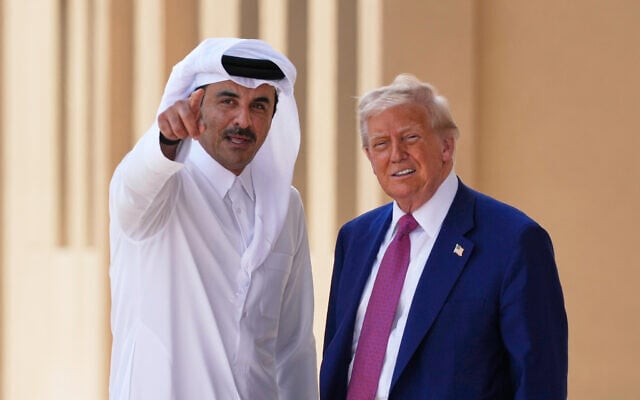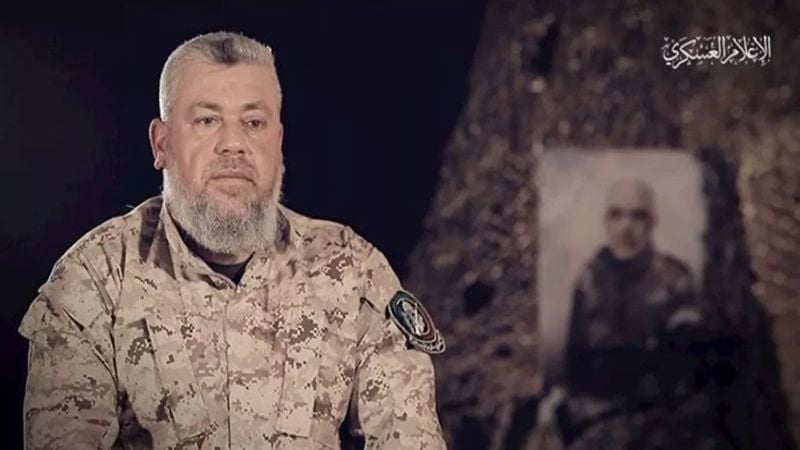


Hamas will reply “positively” to US President Donald Trump’s proposal for ending the war in Gaza, while submitting a series of amendments, a source familiar with the negotiations told The Times of Israel on Thursday, adding that the response could come within hours.
The source told The Times of Israel that Arab mediators from Egypt, Qatar and Turkey have been holding productive talks with Hamas leaders in Doha about the plan, which US President Donald Trump unveiled on Monday. Prime Minister Benjamin Netanyahu accepted the proposal, and Arab countries have praised Washington’s efforts.
The source said that Hamas’s amendments will be aimed at softening some of the proposal’s terms that Netanyahu had added at the 11th hour regarding the Israeli withdrawal from Gaza and Hamas’s disarmament.
Netanyahu managed to secure changes that slow and limit Israel’s pullout of Gaza in addition to tightening the requirements regarding Hamas’s disarmament and the demilitarization of Gaza.
The US proposal requires the terror group to release all the hostages it is holding within 72 hours, disarm, and have no future role in Gaza’s governance. It would also end the war and see the IDF gradually withdraw from Gaza, while being replaced by an international force.
Trump said Tuesday that he was giving Hamas three or four days to respond and that there was little room for additional negotiations.

It’s not clear whether the US will be willing to discuss Hamas’s proposed amendments, as US special envoy Steve Witkoff refused to do so the last time the terror group responded with a “Yes, but.” The top Trump aide recalled US negotiators from Doha and Israel followed suit.
But Hamas appears to be backed by both Arab mediators Egypt and Qatar whose leaders in recent days have indicated that some changes need to be made to the US proposal.
Still, the foreign ministers of Egypt and France both separately called for Hamas to accept the plan on Thursday, even though it would mean an end to the group’s nearly two decades of control over Gaza. Russian President Vladimir Putin also said the plan may be a “light at the end of the tunnel.”
“Hamas bears a very heavy responsibility for the catastrophe experienced by the Palestinians,” French Foreign Minister Jean-Noel Barrot told AFP in Saudi Arabia. “It has lost. It must accept its own surrender.”
The BBC reported on Thursday that Hamas’s de facto leader in the Gaza Strip indicated to mediators that he opposes the Trump plan.
The unsourced report said Izz al-Din Haddad, who formerly commanded the Gaza City Brigade, is believed to think the plan was designed to end Hamas, whether or not it backs the proposal. Therefore, he is prepared to keep fighting Israel.
The BBC report aired after a senior Hamas official told The Associated Press on Wednesday that some points in the proposal are unacceptable and must be amended, without elaborating.
He said the official response will only come after consultations with other Palestinian factions. Speaking on condition of anonymity because he was not authorized to talk to the media about the ongoing talks, the official said Hamas had conveyed its concerns to Qatar and Egypt.

The source familiar with the negotiations told The Times of Israel that Qatar, a key mediator in past ceasefire talks, has been in touch with the US about amending parts of the plan.
An Arab diplomat from one of the mediating countries told The Times of Israel earlier this week that Egypt and Qatar were upset over the changes the US allowed Netanyahu to make in the days leading up to its Monday unveiling.
“There are a lot of holes that need to be filled. We need more discussions on how to implement it, especially on two important issues — governance and security arrangements,” Egyptian Foreign Minister Badr Abdelatty said in remarks made in Paris on Thursday. “We are supportive of the Trump plan and the vision to end war and need to move forward.”
Abdelatty said that Qatar, Egypt and Turkey are working to convince Hamas to accept the plan, warning that the conflict will escalate if the Palestinian terrorist group refuses.
“If Hamas refuses, you know, then it would be very difficult. And of course, we will have more escalation. So that’s why we are exerting our intensive efforts in order to make this plan applicable and to get the approval of Hamas,” he said.
Abdelatty harshly criticized Israel, repeating his accusation that it is carrying out a “genocide” in Gaza, which Israel adamantly rejects. But he also said Hamas must understand that it “has no role in the day after” the war.
“This is a full agreement among us, as Arabs, as Muslims, and even among Hamas people themselves,” the Egyptian diplomat said. “They understand very well that they have no role for the day after, and this is a fact.”

Qatar also remains in dialogue over the plan. On Wednesday, Emir Sheikh Tamim bin Hamad al-Thani and Trump held a phone call over the plan, in which the emir reiterated Qatar’s support for peace efforts. He also expressed confidence that the countries backing the plan could reach a just settlement that guarantees regional security and stability and protects Palestinian rights, according to the Qatari readout.
Another Gaza terror group has likewise indicated some openness to the plan. Palestinian Islamic Jihad had issued a statement on Monday rejecting the proposal, but the terror group, which is holding several hostages, now appears to be softening its stance.
PIJ deputy secretary-general Mohammed al-Hindi told Al Arabiya that the group wants major changes to the plan, a sign that it is no longer rejecting the deal outright. The changes include a clearly scheduled withdrawal of Israeli troops linked to the release of the hostages.


